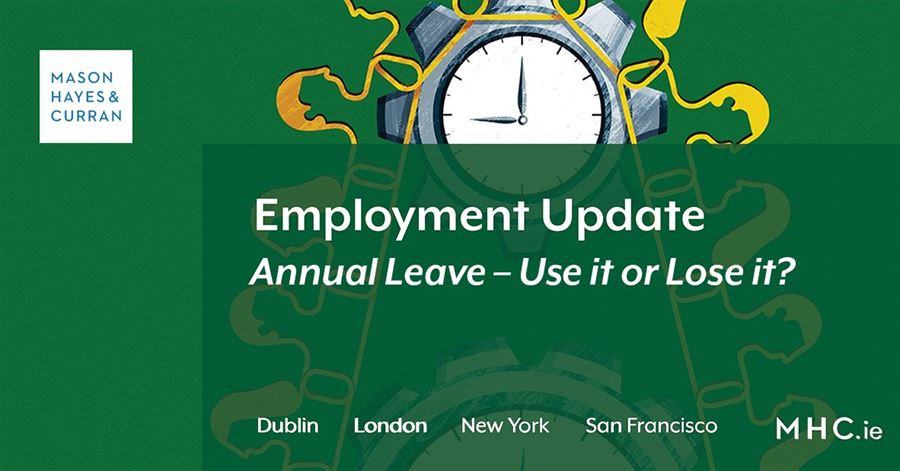
Many employers operate a ‘Use it or Lose it’ policy. This means that, if an employee reaches the end of their annual leave year without taking their entitlement, they will lose it and will not be able to carry it forward into the next year. The decisions of Kreuziger v Land Berlin and Max Planck v Shimizu, examine an employer’s ability to rely on this approach.
Facts
 In Kreuziger v Land Berlin, Mr Kreuziger was a legal trainee who refrained from taking his annual leave. When his traineeship ended, he requested payment in lieu of the days of leave he had not taken, which his employer refused. Mr Kreuziger challenged that refusal before the German Courts.
In Kreuziger v Land Berlin, Mr Kreuziger was a legal trainee who refrained from taking his annual leave. When his traineeship ended, he requested payment in lieu of the days of leave he had not taken, which his employer refused. Mr Kreuziger challenged that refusal before the German Courts.
In the case of Max Planck v Shimizu, Mr Shimizu had accrued 51 days annual leave over a 2 year period. On termination of employment, Mr Shimizu asked for payment in lieu of his accrued but untaken annual leave. The employer refused his request. Similar to Mr Kreuziger’s claim, Mr Shimizu challenged the refusal before the German Courts.
The German Courts referred the following question to the Court of Justice of the European Union (CJEU):Does an employee lose their right to be paid in lieu of accrued but untaken annual leave in circumstances where the employee failed to request the leave, even though they were in a position to do so?
CJEU decision
The CJEU referred to Article 7 of the European Working Time Directive which allows for member states to prohibit employees carrying over their annual leave. However, this approach is only allowed in circumstances where the employee has had the opportunity to use their leave and the employer encourages their employees to take it.
The CJEU stated that an employer must be able to show that they encouraged employees to take their leave and “exercised all due diligence in enabling" the employee to take their leave.
The CJEU clarified that Article 7 of the European Working Time Directive allows for an unconditional entitlement to payment in lieu of accrued but untaken annual leave but only in circumstances where the employment relationship is terminated.
As the employee is regarded as the weaker party in the employment relationship, the CJEU reiterated that employers cannot sit back and benefit from their workers not taking their annual leave. This principle arose in King v Sash Window Workshop Limited. In that case, the CJEU ruled that a worker who was denied his right to annual leave as a result of being incorrectly classified as self-employed was entitled to back-dated annual leave pay. Mr King was awarded 13 years’ worth of untaken annual leave pay. This award serves to highlight that leave may be carried over indefinitely in circumstances where the employee has been denied their right to take their leave. This case opens the door a little further to claims for unpaid leave and highlights that many companies who have contractors/consultants may be vulnerable to claims.
Conclusion
Employers do not have to force their employees to take holidays. However, they do have to encourage and make their employees aware about their leave entitlements.
In summary, the key takeaways for employers are:
- Have a clear and understandable annual leave policy
- Ensure that your employees are aware of their annual leave entitlements
- Encourage your employees to take their annual leave
- Document attempts made to encourage employees to take annual leave
- Ensure employment status is classified correctly
If you need any advice on the potential impact of the above decisions, please contact a member of our Employment & Benefits team.
The content of this article is provided for information purposes only and does not constitute legal or other advice.





